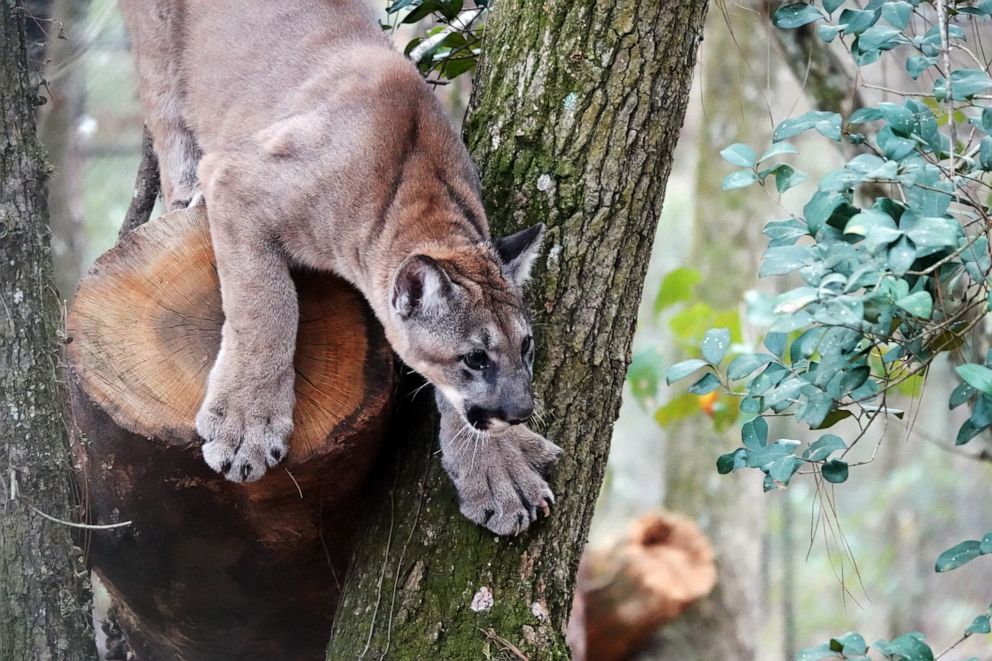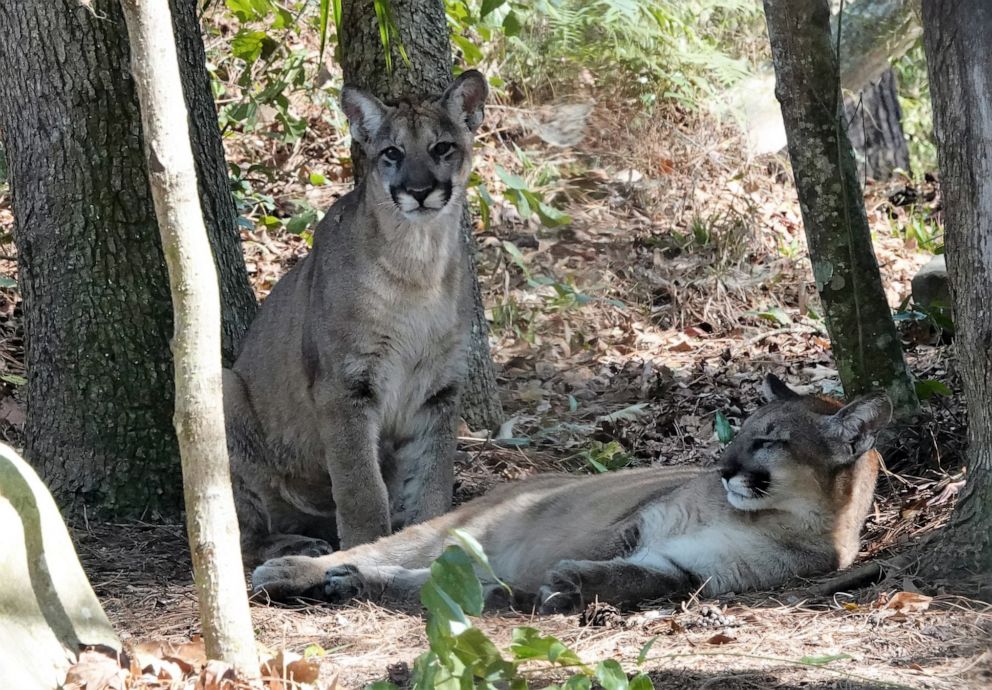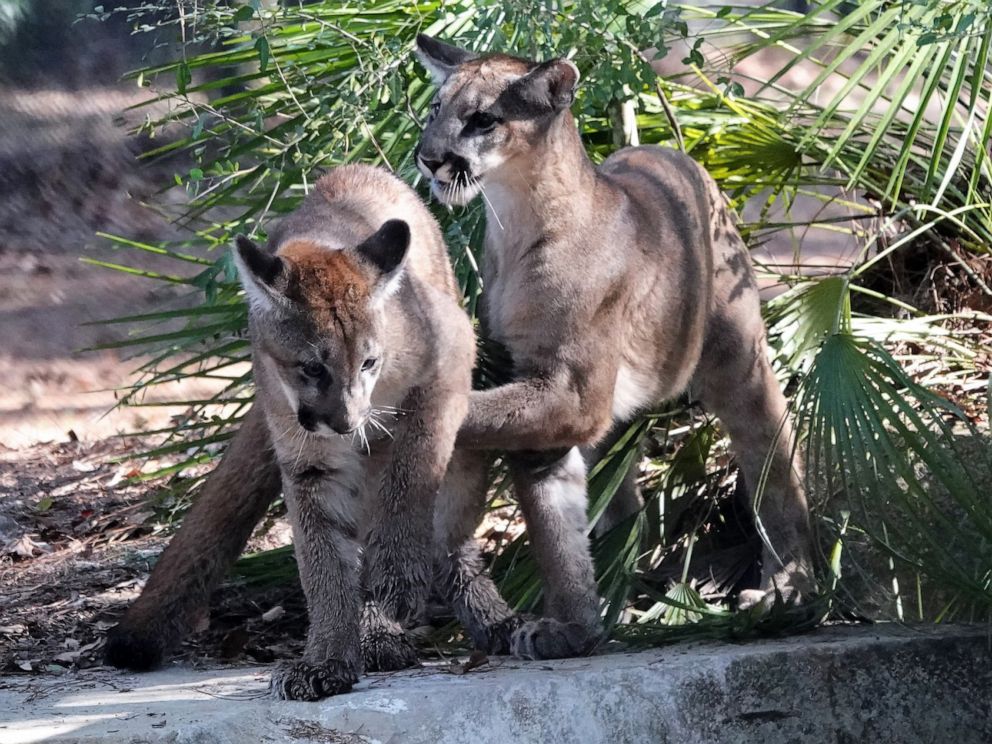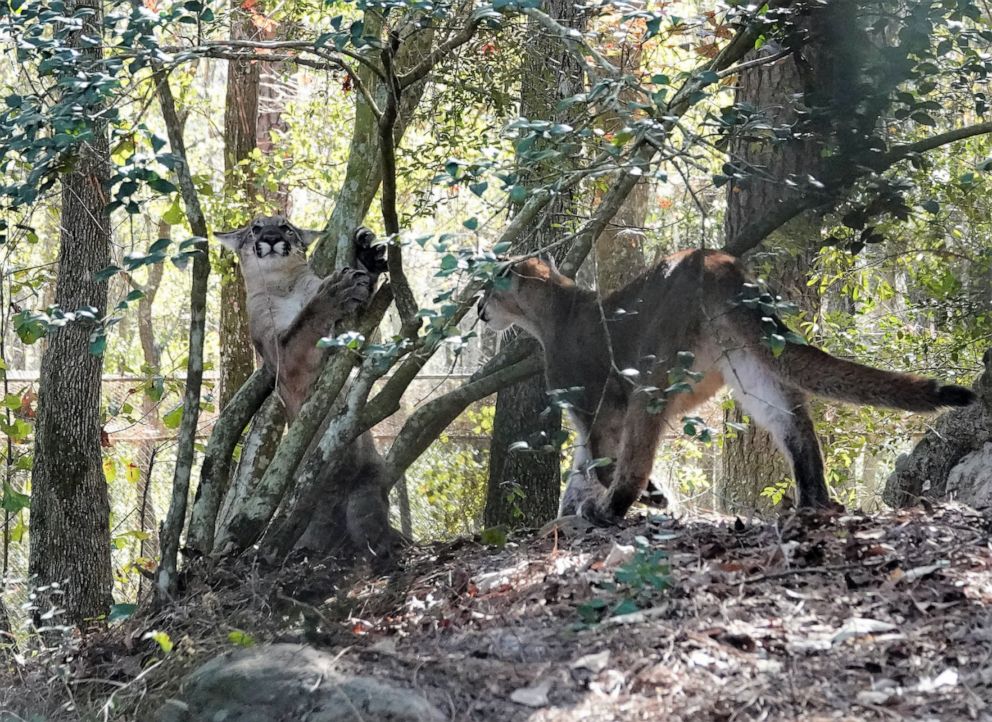Endangered Florida panther kittens find forever home at wildlife conservation
The 7-month-old brothers arrived at White Oak Conservation this month.
A pair of endangered Florida panther kittens, whose mother was unable to care for them in the wild, have found their forever home at a wildlife conservation.
The 7-month-old brothers, named Cypress and Pepper, arrived at White Oak Conservation in Yulee, Florida, on Jan. 22, the center announced in a statement on its website this week.
"It's been great," Brandon Speeg, director of conservation at White Oak, told Jacksonville ABC affiliate WJXX. "They like to play on their rock structures, keepers are taking care of them. They've had a great first week."

The rare duo was rescued by the Florida Fish and Wildlife Conservation Commission last year after their mother suffered from an unknown neurological disorder that is recently affecting wild populations of panthers and bobcats. The mother was observed on trail cameras in early July 2019 struggling to walk and state wildlife officials felt her kittens, estimated to be just 2-weeks-old at the time, would not survive in the wild.
The brothers have been hand-raised in human care ever since, making them unlikely candidates to be released back into the wild. Both kittens have been tested and will continue to be monitored for the neurological disorder.
The pair was cared for and monitored at ZooTampa in Lowry Park, Florida, before being transported to White Oak Conservation last week.

Located on the banks of the St. Marys River, White Oak Conservation takes up 700 acres of the 13,000 acres of forests and wetlands on White Oak Plantation. The conservation's breeding programs have worked with the Florida Wildlife Conservation Commission as well as the U.S. Fish and Wildlife Service to bolster wild populations of Florida panthers, along with a number of other imperiled species such as rhinoceros and cheetah.
"White Oak is the only place in the world that rehabilitates injured Florida Panthers for release into the wild," Speeg told WJXX.
The Florida panther is a subspecies of the puma, also known as the mountain lion or cougar, and is the only known breeding population of puma that remains in the eastern United States, according to the U.S. Fish and Wildlife Service.

Florida panther kittens typically stay with their mother for about a year and a half before leaving to form their own territories. They live for about 12 years in the wild but are susceptible to disease, genetic disorders and getting hit by cars, according to the National Wildlife Federation.
Perceived as a threat to humans, livestock and game animals, the big cats were heavily hunted and nearly went extinct by the mid-1950s, according to the National Park Service. The Florida panther was added to the U.S. endangered species list in 1967.

The mammals are reclusive, typically living in remote, undeveloped areas of southern Florida, and thus are rarely seen by people. However, they are under threat from increasing human population and development in their habitat. Less than 130 Florida panthers are estimated to remain in the wild in a restricted range in South Florida, according to White Oak Conservation.
"They play a really important role in Florida ecology," Speeg told WJXX. "It's like playing Jenga. If you remove something, they all support each other and you aren't sure what impact that's going to have."



